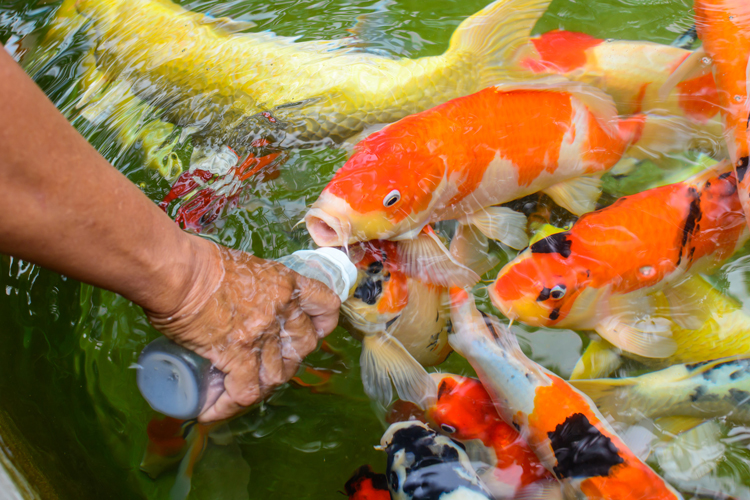Fish Food 101

As with any animal, the key to good feeding is providing a balanced diet. Fish love variety, which keeps them hardier, more active, less prone to disease and enhancing their colours. This can be achieved with three levels of nutrition – a daily staple diet, a supplemental diet two or three times weekly and nutritional supplements as and when needed.
It is most important to determine the right choice or combination of staple foods to feed your fish once or twice a day. If your fish are herbivores, it should be a vegetable-based food, while if they are carnivores, it should be a meat-based food.
Although there is an overwhelming amount of choices on the market, there are three key types of fish food.
Flake Food
The most common type of fish food consumed by pet fish, flake fish food usually comes in a small container with a removable lid. They are baked at high temperatures to remove moisture and to give it a much longer shelf life. Flakes are dry and designed to float on water, making it best suited for fish species that prefer to feed at the surface. But rest assured that bottom-dwelling fish will still be able to eat the flakes after it settles at the bottom of the tank.
Pellet Food
Pellet fish food formulas are made up of many of the same ingredients as flaked fish food, just in pellet form. These may appeal to certain species of fish, and also retain their form long enough for larger fish to ingest them. You may have to experiment with different types of pellet foods in order to find one that is most easily digested for your fish.
Live, Freeze-Dried or Frozen Foods
Some fish thrive when given a supplemental diet that includes live organisms. This may also be in freeze-dried or frozen form. Possible organisms that can be used include brine shrimp, bloodworms, sludge worms and micro-worms. For larger fish, it is also possible to purchase smaller ‘feeder fish’ to provide them with a live diet.
Whichever you choose, bear in mind that there can be too much of a good thing – overfeeding is to be strictly avoided, as this can lead to serious and often fatal consequences.









